
Afghanistan @ Robert Knoth & Antoinette de Jong
“It becomes very focused on just a few things, like religious extremism, terrorist groups, attacks, the Taliban, and Afghans beating their wives. These kinds of stories are what everyone is after.”
By Paul Loomis exclusively for ASX, Interview conducted on Monday, February 11th, 2013
Antoinette De Jong and Robert Knoth are the authors of a book called “Poppy: The Trails of Afghan Heroin” that has transformed the way we think about photojournalism. It doesn’t fall victim to the reporter’s myopia of five hundred word stories three times a week, nor does it follow the western media’s coverage of religious extremism. Instead it does something that is magical, and that we at ASX have not seen a book of photojournalism do before. It opens a world that you rarely consider and shows you its pulsing red insides.
Knoth and De Jong are married, and have worked together for many years. They are from the Netherlands, and have learned to share the task of explaining their project harmoniously. When they speak, they seem to leave some for the other to finish.
A search for their names on the Internet is little good, you merely find them on Dutch television shows, and maybe encounter a blurb about one or the other. For us, after reading Poppy, this internet silence was Pynchonesque mystery, and so when they responded to our request for an interview, we were elated. We were not disappointed.
ASX: You were both photojournalists before you left the world of commercial journalism and started working on Poppy and other projects. What led you set out on your own?
De Jong: I worked in newsrooms for a long time before finally quitting my job and going to India. From there I went to Afghanistan because at the time, in the 1990s, everyone was telling me how beautiful it was, and saying how much I would love it. The best times of my life have been in Afghanistan. Riding through the mountains there on horseback, you just can’t beat it. I became fascinated.
Knoth: I think it was when I was in Pakistan after 9/11 and then suddenly 3000 journalists showed up all looking for a story.
De Jong: Yes, I had the same experience. I had been working in Afghanistan, and I was mostly the only person there. When there are no other journalists you are free to pursue the stories that you feel are important, but when everyone shows up you cannot sell your story, because then there is only one narrative and everyone wants to tell the same tale.
Knoth: It becomes very focused on just a few things, like religious extremism, terrorist groups, attacks, the Taliban, and Afghans beating their wives. These kinds of stories are what everyone is after. That was one of the reasons that I began leaning towards these long-term projects instead of the daily news. When you write three stories a week they are bite sized, and no one knows what is going on in the larger picture. With Poppy, we were able to cover so much more.
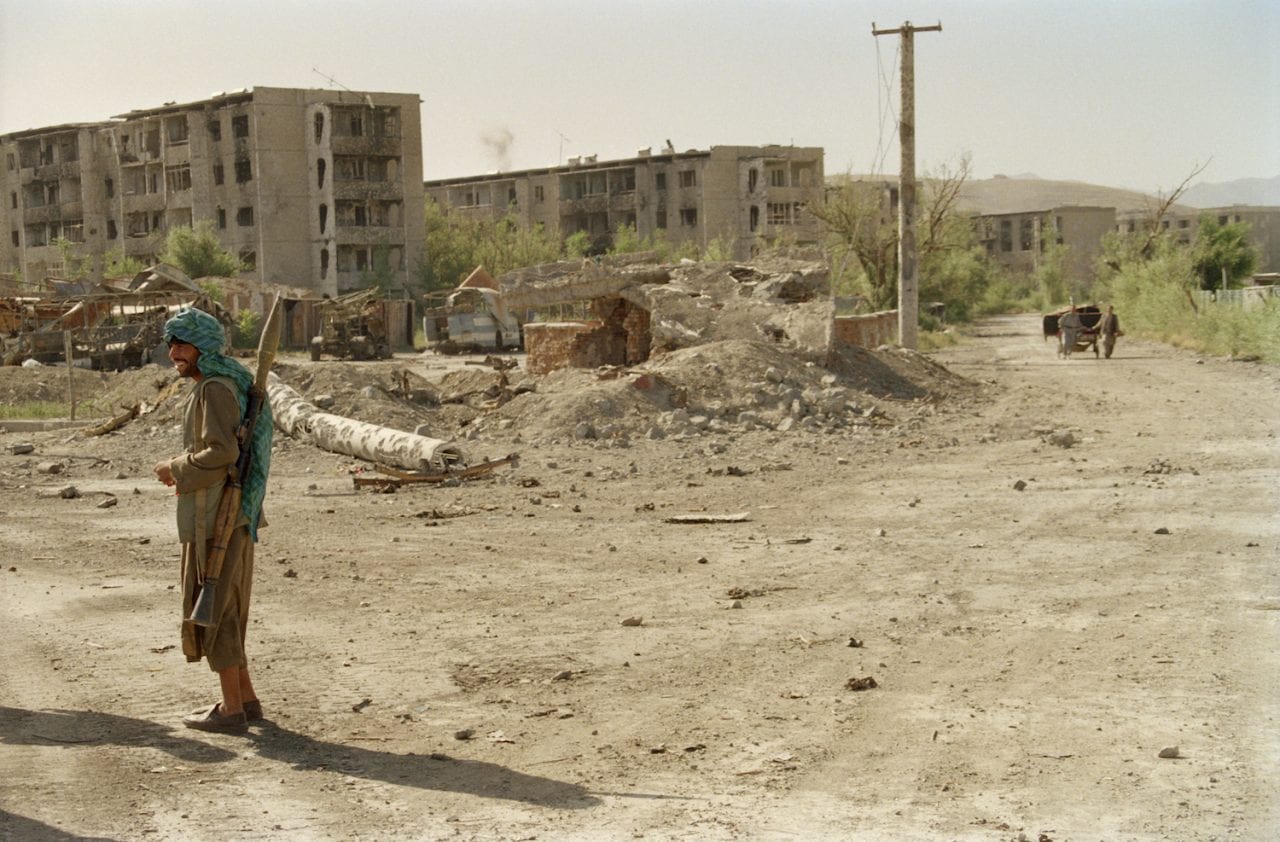
Afghanistan @ Robert Knoth & Antoinette de Jong
“But a typical day there, well, I would always be sick! Usually I never got sick, and Robert was the one who was sick everywhere we went, but in Somalia it was me. So I would wake up, boil the water, filter the water, chlorinate the water and then boil it again, and then still get sick!”
ASX: As a child I lived in the Netherlands, and it was a very peaceful, idyllic time of my childhood. What do you think drove you to get on the plane to Somalia or Afghanistan for the first time and go so far away from that European safety?
Knoth: We both grew up in the Netherlands and had very happy childhoods. My grandfather was a military man actually, as were other people in my family. My grandfather had a travel agency in the 1920s. He organized trips all over the world and was one of the first people to take tourists to Africa, the Middle East, and the United States. He was also a great photographer, a lot better than me. So I think it’s in your blood sometimes, a little bit of gene programming.
I went to Somalia in 1993 simply because the opportunity arose, and while we were coming over the city I saw a UN convoy moving very fast through Mogadishu. Then when I stepped off onto the runway I was almost run over by a UN tank, and there were all of these smiling Somalis asking “Whose he? Why is he here?” I just thought it was a big mistake, almost turned around and got back on the plane, but I ended up staying. Some people can do this kind of work and some people can’t.
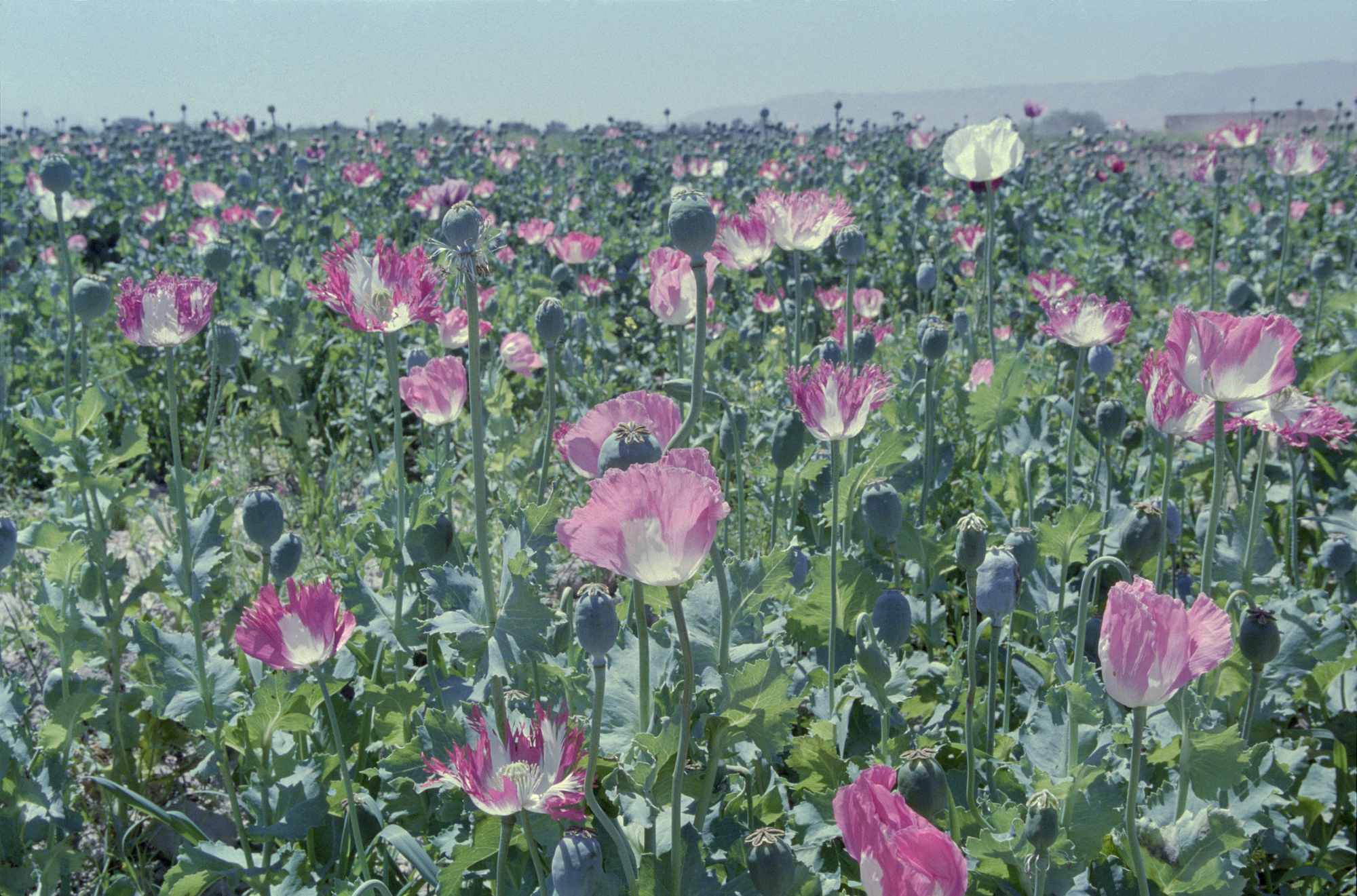
Afghanistan @ Robert Knoth & Antoinette de Jong
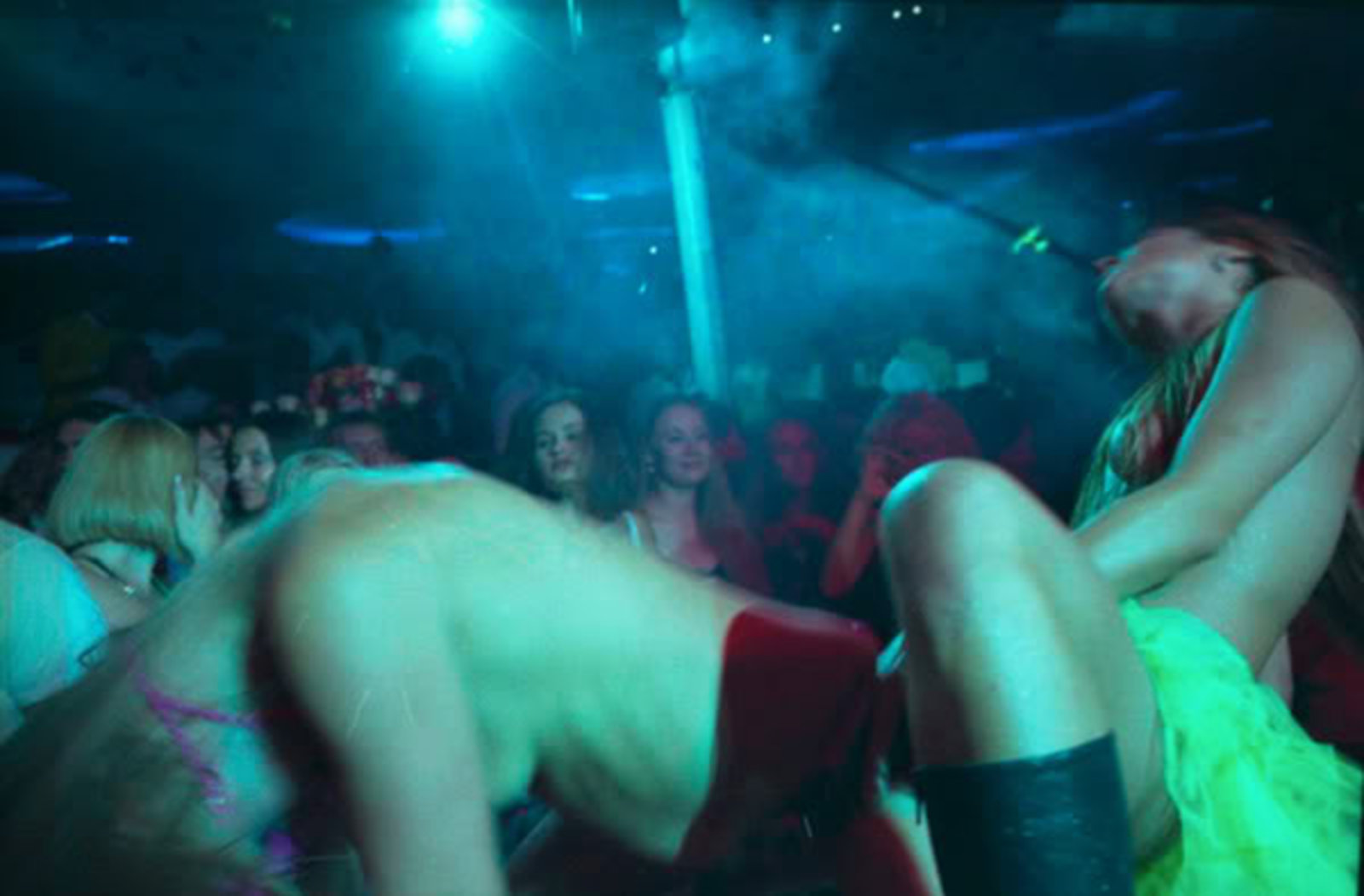 @ Robert Knoth & Antoinette de Jong
@ Robert Knoth & Antoinette de Jong
“Also in Somalia it never is a smart thing to offend anybody. That might get you killed on the spot, conflicts over work and payment included.”
ASX: Which conflicts have you covered for the international press, before starting on the Poppy project?
Knoth: Somalia in the 1990s, starting in 1994, Sierra Leone, Afghanistan, Pakistan, Tamil conflict in the 1990s, Kosovo, Sudan and others.
ASX: Somalia gets a lot of press as one of the wildest places in the world. I think a lot of westerners couldn’t even imagine going there. Describe a typical day of reporting there, what should a visitor never do there?
De Jong: (laughing) Walk around alone on the street! That’s something you shouldn’t do.
But a typical day there, well, I would always be sick! Usually I never got sick, and Robert was the one who was sick everywhere we went, but in Somalia it was me. So I would wake up, boil the water, filter the water, chlorinate the water and then boil it again, and then still get sick! Then we would go out with our translator and try to take some photographs and talk to some people. I remember that almost every day there Robert would reach for his camera in the street, and almost in exactly choreographed motion, these little boys would reach down to pick up rocks to throw at him (laughing), it was just hilarious.
Knoth: Its true! Also in Somalia it never is a smart thing to offend anybody. That might get you killed on the spot, conflicts over work and payment included. In this case it’s a bit of a story: Weeks before our arrival in the region of Geddo in Western Somalia everyone was already aware that we were coming. We were warned that quite a few people were already competing with each other to provide us with a car and fixer to earn some cash. If you pick one, you piss off the others, who then might pressurize you in working with them.
Before our arrival we already had arranged a safe fixer and car, while landing at the airstrip of Bardera we already saw other cars waiting for us. One of them was Abdi, a nephew of the king of the Marehan clan, which we found out later. Off course Abdi wanted to work with us, guaranteeing our safety, and he was not inclined to let us go. We managed telling him that we already had another team, which took a while.
The next day, just when we thought we would not see him again, Abdi returned triumphantly. With him was an old man who was introduced to us as ‘the king of the Marehan.’ Abdi handed us a letter starting with: “Read this letter carefully, it is good for you.” The king of the Marehan recommended we work with Abdi. If not, the letter read, our safety could not be guaranteed. After a quick discussion amongst ourselves we promised to work with Abdi tomorrow, after which they left. Within half an hour we were on our way to Garbahaarrey, knowing that it would be rather suicidal to return to Bardera any time soon. It’s like being in the Godfather. Offers you can’t refuse.
But I love Somalia. The people there, they are incredible. They have this wonderful sense of humor, a playfulness about them, and they really know how to enjoy life. For them, the fact that you are a westerner isn’t important, it often plays a complicating role when working in Africa. It’s a fabulous country.
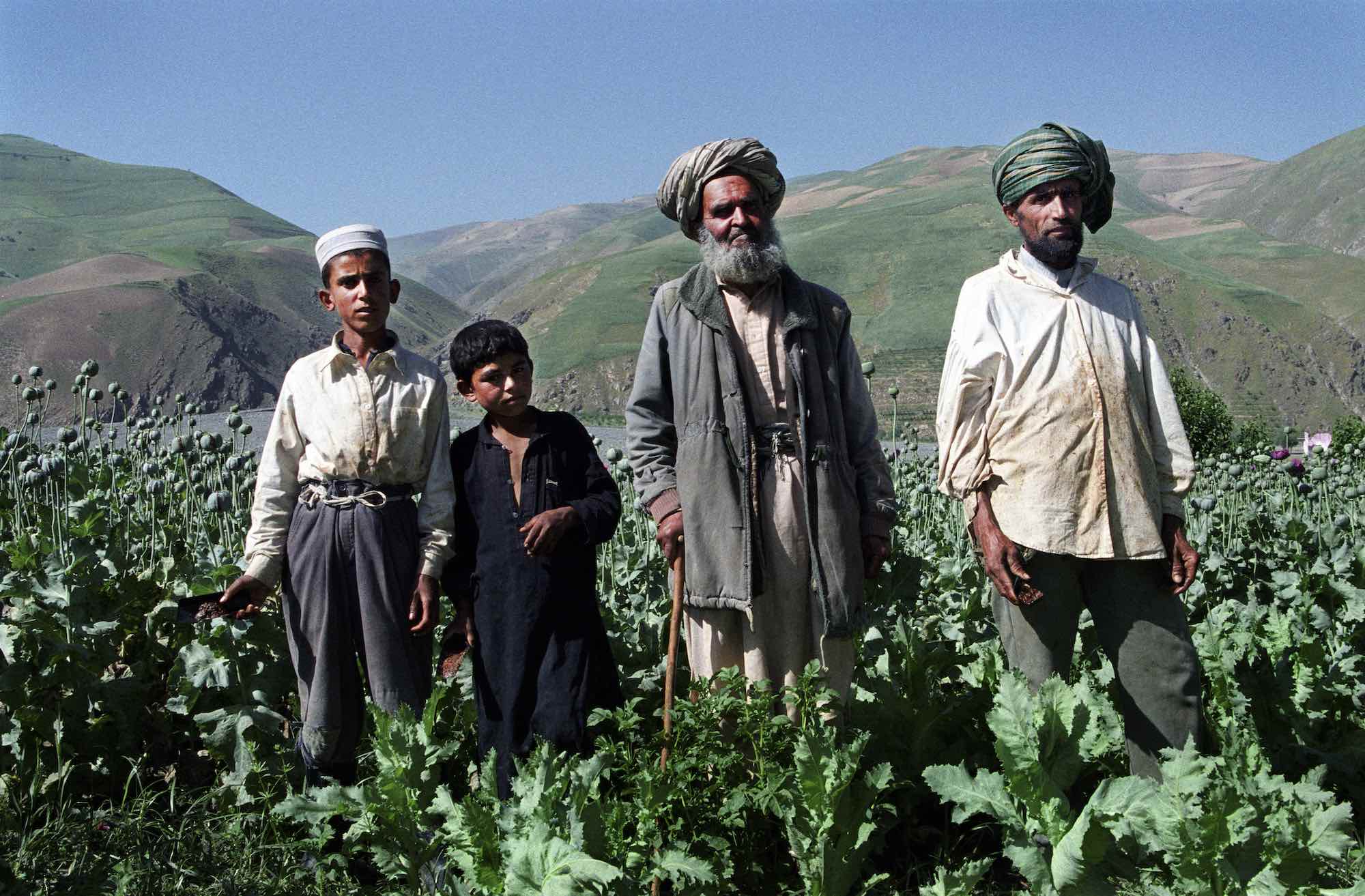
@ Robert Knoth & Antoinette de Jong
“But I love Somalia. The people there, they are incredible. They have this wonderful sense of humor, a playfulness about them, and they really know how to enjoy life. For them, the fact that you are a westerner isn’t important, it often plays a complicating role when working in Africa. It’s a fabulous country.”
ASX: So in all of these countries you must have spent a lot of time finding the right people to talk to. Did you have a method? Or more broadly, how did you do it? For example in Afghanistan when you were photographing people working in the illegal poppy fields they seem very relaxed and unconcerned. This is the case for many people and situations you’ve photographed. Is there a strategy that works consistently?
De Jong: Just walking in the street and getting to know people is a great way to do it. You get invited into homes, invited to eat, and people tell you stories. We prefer to stay in one place for a longer period of time rather than go to five places in the same period. And always we are looking for people who, by sharing the details of their lives with us, tell the region’s story.
Knoth: An excellent translator is the most important thing. They not only translate but they also introduce you to people in the community. But no, there is no method that works consistently everywhere. Working in Afghanistan is completely different than working in Somalia. The only consistent thing is that you must have someone to break the ice between you and the community.
De Jong: We also try to always have fun wherever we go. With the people working in the poppy fields we have a good time, we laugh, and take their pictures. This is the same everywhere we go.
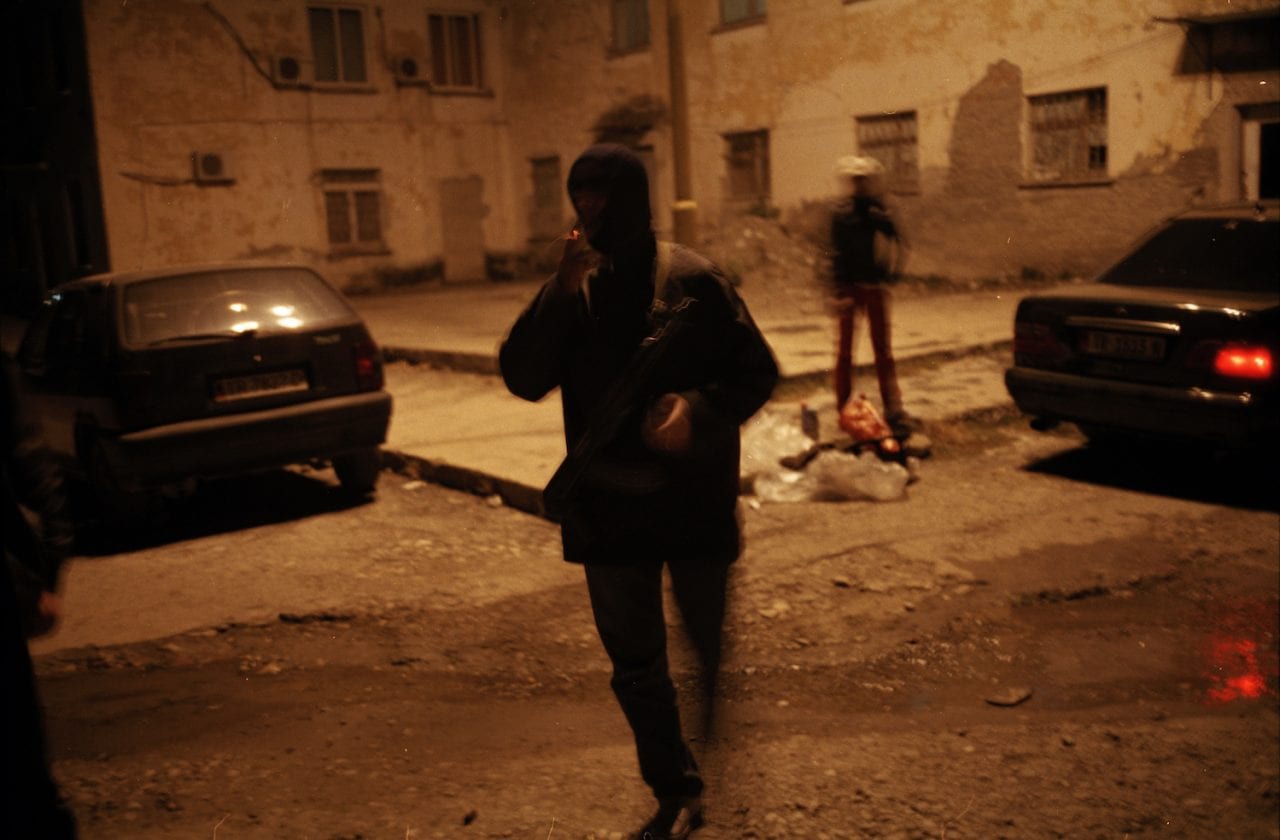
Albania 200. Organized crime groups are hybrid organizations. @ Robert Knoth & Antoinette de Jong

@ Robert Knoth & Antoinette de Jong
“We agonized over what to include and what to leave out for almost three years. This project spanned twenty years of our lives, and when you look at it you might think that we set out to do it, that we began with a plan.”
ASX: What kind of camera(s) do you use?
Knoth: I have always used film cameras for a few reasons. A Hasselblad, a few others. When you go to Afghanistan with digital cameras you run out of batteries in a few days, and then you’re in trouble with no electricity available. Film cameras also tend to be lighter, and we try to travel as light as possible. Then you don’t seem as official or as much like a journalist. Your not holding the newest digital camera. People tend to forget about you and allow you to work, they don’t give you the same respect and they are more natural.
De Jong: I shot video the last time we were in Afghanistan with a 200 Euro flip camera. It was small, lightweight and cheap, but the footage was good and that is what’s important. One of our translators in Somalia used to make fun of Robert all of time for using these old cameras. He couldn’t understand why a westerner would use old equipment.[/column]
ASX: Poppy is a powerful book, and much of this power comes from how succinct it is. Although very large, it distills a vast amount of information into a single volume. Did you have a method for synthesizing so many years of reporting into a single book, once all of the work was done?
Knoth: This was one of the most horrible parts of the entire project. We agonized over what to include and what to leave out for almost three years. This project spanned twenty years of our lives, and when you look at it you might think that we set out to do it, that we began with a plan. But no, there was no plan, we merely realized at some point, several years ago, that we had worked in the region long enough to see something really large and unique. We saw that it was many of the countries or issued we had been reporting on were in various ways connected and decided to make a book.

@ Robert Knoth & Antoinette de Jong
De Jong: Of course there were many arguments over what to include and what to throw out. We both had things that were very important to us.
Knoth: Yes we fought a bit didn’t we? But after going through 1000 or so rolls of film, maybe more, we had come out with a series of photographs, around 1500, that we felt showed our experience. Then the book designer got involved, and we gave him what we had. After he’d looked at it we asked him if it made sense and he said no, he had no idea what had happened or what we’d seen. It made no sense at all. So he broke it up into these epochs, sort of trails that we’d travelled, and suddenly it all began to come together. That was around a year before the book was published.
The photos were incredibly difficult to choose from because we had all kinds of formats. I have shot in these regions with large format black and white, with my Hasselblad, with 35mm color, and then Antoinette with an old Olympus 1,her flip camera and a digital Canon, so the mediums really were incredibly diverse. At one time this might have been unacceptable, but now with the internet, you could even shoot pictures with a cell phone camera, the aesthetic standard has been seriously altered. We threw out all of the aesthetic photos and focused only on the story. That was a very important part of the process. We discarded everything that was merely beautiful and had nothing to say.
De Jong: Combining all those different formats also worked well to provide an element of fiction to the book, and at times an almost surreal feeling. As far as keeping it succinct, rather than going in depth on some issues, we felt it was more important to paint a mosaic. Often you only need to hint at something or suggest something in a few words and images. That can already show the fluidity of events and explain the chains and networks and how it’s all connected. We wanted to provide a high density of all sorts of information that seemingly had nothing to do with each other and then peel off the layers and allow the reader to see the story emerging.
We split it up in three layers: first a historical timeline, second our own observations/reportage elements and diary fragments, and the third was captions/extra information related to the pictures shown. And then the main text. Each element was needed to understand the others. For each country we started to collect information, roughly from the beginning of the Afghan civil War in 1972 till 2011. So it was quite methodical.
ASX: That confirms my initial suspicion that all of the images are highly curated and none are lightly placed. One of the photographs I remember best best from the entire book is the one of Mamik, the blind girl you photographed first in 2001, and again in 2009. Her transformation was so tragic, and it is one that reveals the desolation and poverty that drives so many people in Afghanistan to cultivate poppy. Have you seen her again? Can you talk a bit about your relationship with her?
De Jong: Yes, Mamik’s image was one I was absolutely convinced had to be in the book. When we first met her we were riding on horseback, not even in trucks, through the mountain communities who were experiencing a terrible drought. There were many fresh children’s graves. All of the men had gone off to Pakistan, to Iran, or to Kabul to find work because nothing could be grown any more in the villages. There were only women and children and old people, and many of the old had stopped eating in order to save food for the children and their mothers. It was devastating.
When I met Mamik the vulnerability of her position was immediately clear. There was no medical care for her, and only her friend to take care of her in these very difficult conditions. She said it herself; she said that she didn’t know what she would do without her friend.
And when we came back almost ten years later, her friend had been married off to another village, and Mamik had to live with her brother and there she was pretty much confined to the house, without anyone helping her. She had no hope left. I thought her position was like that of much of population and in that sense it helps to explain the context of life in Afghanistan.
ASX: When I saw the first picture I thought that you understood her situation much better than she did, and that the horror of that second picture is part of life’s fundamental horror. In that second photograph she has been finally introduced to her own reality. I thought too that she in many ways represents many of the people in the book, people who participate in the global drug trade because from their situation it is a very viable, reasonable option. I kept having this reaction to Poppy as I was reading and viewing the photographs, realizing that people react in a logical way to their surroundings, and that if I were them I would almost certainly do exactly the same thing. I would become involved in the drug trade if it was my only option.
De Jong: I’m glad you said that, because throughout the book we tried very hard not to be judgmental, to show people in the places they live with their options around them. This was very difficult, and I worry sometimes that to some people the book might seem a judgment on those it depicts.
Knoth: The heroin trade in Afghanistan set off in the 1980s, as way of funding the Mujahedeen which received large sums of money and weapons from the West and the Saudis, and being quite aware of the fact that they were dealing in opium and heroin on a large scale. Much to the chagrin of the DEA they were not allowed to go after these cartel. From Afghanistan the drug trade started to tap into this emerging global network and it has continue to grow ever since. Millions of people now depend on it.
Drugs have become an integral part of our economic system and drugs have been a byproduct of modern warfare since the dirty wars in South East Asia in the 50ties and 60ties.
ASX: This sort of brings us to my next question. I live in Mexico City, and Mexico has an enormous drug trafficking problem. I had a friend who was a journalist here in the city, and who sadly died in mysterious circumstances shortly after I met him. Before he did, he told me that the only option when it came to drugs was to put them in the hands of Governments and Corporations, who he claimed were only potentially evil when they were not regulated, in order to keep them from falling into the hands of criminals, who in his opinion represented a legitimate evil. After tracing the effects of an extremely powerful (politically and physically) drug, what policies would you urge Western governments, who have drug consumption problems, and other governments, who have drug production and trafficking problems, to pursue? Do those policies include legalization and taxation?
De Jong: We tend to support legalization, but reluctantly. It’s not going to be the silver bullet, but it will reduce a lot of the negative side effects, crime, healthcare issues and addiction. It is difficult to implement smart policies. For example the semi-legal marijuana laws in the Netherlands have had some serious drawbacks, and are now playing out in organized crime and violence. So yes to legalization, but with great care.
ASX: So that is one option, if governments decide to legalize, but for many Western governments that does not seem like a political reality within the next several decades. Do you envision any kind of decline in the global drug trade in the next 50 years? One precipitated, perhaps, by more advanced surveillance and enforcement methods by governments? Or will the drug problem grow as new markets open up in the developing world?
Knoth: It is quite impossible to contain the flow of drugs or any other goods for that matter. Much if it having to do with scale. New technologies and developments have allowed us to increase the scale in/of which we do things and also at a cheaper price. Containerships can now carry up to 11.000 containers: in less than 10 years’ time the amount of goods transported more than doubled from 332 million tons to 828 million tons. It’s impossible to check everything. At the same time drug cartels clog the judicial system with drug runners, often tipping off the police themselves while the big shipment bribe their way through. Another example are IED’s, they are now cheap to produce, so in Afghanistan the Taliban have figured out that while planting one IED has little effect, planting a hundred of them is a very effective way of taking on an opponent who in terms of resources is vastly superior. The same goes for human traffickers or those who are involved in counterfeiting goods, etc. Scale has been an effective strategy for the ‘little men to take on the strong men’ so to speak, and to obstruct the entire system of control. The fact that crime has gone transnational makes it even worse since governments are restricted to operate within their own countries. The US and NATO logical response is drones and special forces operating in more than a hundred countries in a desperate attempt to stem the growing anarchy.
Whether that is the smartest response is a different matter altogether.
ASX: In Mexico the Narcos have more planes and better guns than the police.
Knoth: Right, they are being outspent.
ASX: On the back of “Poppy” the first line is “In the 21st century, globalization has opened up the world for better or for worse.” This question is simple, and at some point everyone decides it for themselves. For you, globalization is ultimately what kind of force? Do you fear its impacts or believe in its liberating power?
Knoth: Well I don’t know, it’s very difficult to say, I think it’s both. For me it’s both. It’s much better than the cold war. (laughs)… It has improved the lives of millions, if not billions of people though, without a doubt. On the other hand some of the consequences we have seen are very dire.
De Jong: Absolutely, it’s very complicated and very difficult to understand as a phenomena. Poppy is a result of it though, in many ways. Its coverage, its expanse, which you have mentioned, was only possible with the Internet. But 21st century globalisation is a process of transformation, as it was in late 19th century when we moved from an agricultural society towards an industrial society.
Knoth: Back then it also led to massive instability eventually leading to WW1 and WWII. At the moment the chaos around us is growing as well. So maybe it’s time to start looking at what is going from a different perspective, the economic rationale behind it instead of religious extremism vs democracy. Our book is an attempt to do that. If anything Poppy is about transformation.
De Jong: Without the Internet… you’ve mentioned your debt to the Internet in terms of what you are aware of and what information is available to you, we are the same. The amount of information that we were able to integrate into Poppy would not have been possible without the net. Our research phase was enormous, and honestly I don’t think the series of realizations that made such a huge portrait possible would have ever been set into motion without the enormous amount of data at our fingertips.
Knoth: There something called data journalism now, where you don’t listen to anyone, you don’t read the papers, you just look at massive amounts of data. And frequently what you see in that data is completely different from what everyone is saying. Poppy is somewhat like that.
ASX: It actually makes more sense to me now, the book does. Now that you’ve mentioned your debt to the Internet and its ability to put so much information at your fingertips, I recognize Poppy as a very unique object of our age. I said repeatedly that I really know of no other book like it. I think it is singular in its scope and perspective and in the vast amounts of information it synthesizes. An impressive achievement. What’s next?
Knoth: That’s still uncertain. We have some ideas for new work. We have carefully considered a film adaptation of Poppy, but that is still not much more than a plan. We are continuing with Fukushima, and some other smaller projects. Right now we don’t have anything planned on the scale of Poppy. I guess Poppy is just once in a lifetime given the scope and depth of the project. It’s actually quite difficult to decide what is next in that sense.
(All rights reserved. Text @ ASX and Paul Loomis. Images @ Antoinette De Jong and Robert Knoth)
